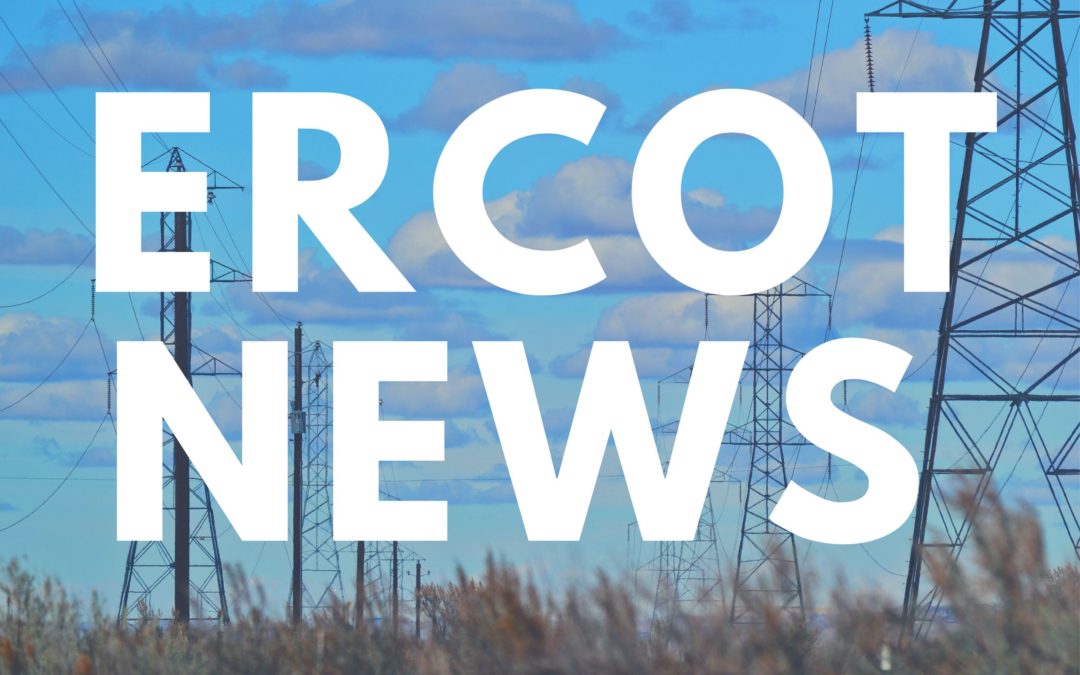Anxiety over the proliferation of cryptocurrency mines in Texas has prompted the proposed regulation, but it also could affect oil fields, steel mills and other major electricity consumers
________________________________________________
ERCOT is considering new rules that some industrial companies say could damage the state’s ability to attract large manufacturing to the state.
 Anxiety over the proliferation of cryptocurrency mines in Texas has prompted the proposed changes, but they also could affect oil fields, steel mills and other major electricity consumers. Industrial-scale users describe the proposed changes as unprecedented in Texas, and nonexistent anywhere else in the United States.
Anxiety over the proliferation of cryptocurrency mines in Texas has prompted the proposed changes, but they also could affect oil fields, steel mills and other major electricity consumers. Industrial-scale users describe the proposed changes as unprecedented in Texas, and nonexistent anywhere else in the United States.
Under the ERCOT proposals, any new facility with an average peak consumption of 75 megawatts or more – that is, enough at least to power about 15,000 homes on a hot summer day – would need to provide additional operational information to ERCOT and comply with other new requirements. Smaller consumers using 25 megawatts also would need to provide more information to ERCOT. In the proposed rules, ERCOT also wants to regulate when and how large-scale users ramp up and down their power consumption.
The regulation, under revision by a workgroup composed of industry experts, is months away from final approval. Eventually it will head to ERCOT’s board before final consideration by the Public Utility Commission.

Katie Coleman, of Texas Industrial Electricity Consumers
Industrial Consumers Express Concern
But a major industrial trade group already has taken steps to intervene in the process, according to published reports. In addition to submitting comments opposing the rules, representatives of the Texas Industrial Electric Consumers trade group recently met with officials in the governor’s office and the PUC about the regulation, according to a report in the Dallas Morning News.
The recent influx into ERCOT of large data centers such as cryptocurrency mining facilities and those focusing on artificial intelligence is driving the rules proposal. Unlike more traditional industrial-scale energy consumers, crypto miners and data centers can ramp up and down in scant minutes in response to power price fluctuations. This rapid-fire ramping can strain ERCOT’s ability to control frequency levels, and thereby create grid reliability challenges. Also, unlike more traditional large-scale industrial facilities, crypto-mining operations can go from paper concepts to operational facilities within months.
Katie Coleman, counsel for Texas Industrial Electric Consumers, said ERCOT would exert too much control over industrial users if the proposed go into effect without changes. “For the first time, ERCOT is trying to basically reach down to their facility and impose requirements on how they operate,” said Coleman, according to a Dallas Morning News report.
Supporters of the rules change told the newspaper that the proposed requirements are no more onerous than those already imposed by utility companies when determining the level of infrastructure needed to connect industrial users to the grid.
Lee Bratcher, president of the pro-crypto Texas Blockchain Council, said his organization mostly supports the proposed rules, according to the Dallas Morning News.
According to ERCOT, the proposed regulation would only apply to industrial-scale consumers seeking to connect to the grid within two years. ERCOT began its consideration of the crypto-mining influx in 2021, when it created a task force to examine the issue.
The Background
On June 9, Texas Gov. Greg Abbott signed into law Senate Bill 1929, new legislation that grants explicit authority to ERCOT for registration of crypto loads. Later, in the spring of 2022, ERCOT and its stakeholders formed the Large Flexible Load Task Force (LFLTF) to consider the unique grid challenges presented by the rapid influx of crypto-mining operations. At the time, there were 17 megawatts of crypto load in ERCOT’s interconnection queue. Much more exists now. In August, ERCOT filed the work product of the task force, Nodal Protocol Revision Request 1191. This NPRR continues to be discussed at the task force’s monthly meetings, but now more traditional ERCOT committees also have become involved — including the Protocol Revision Subcommittee. Eventually, NPRR 1191 could make it to the full ERCOT board and the PUC for ultimate approval.

